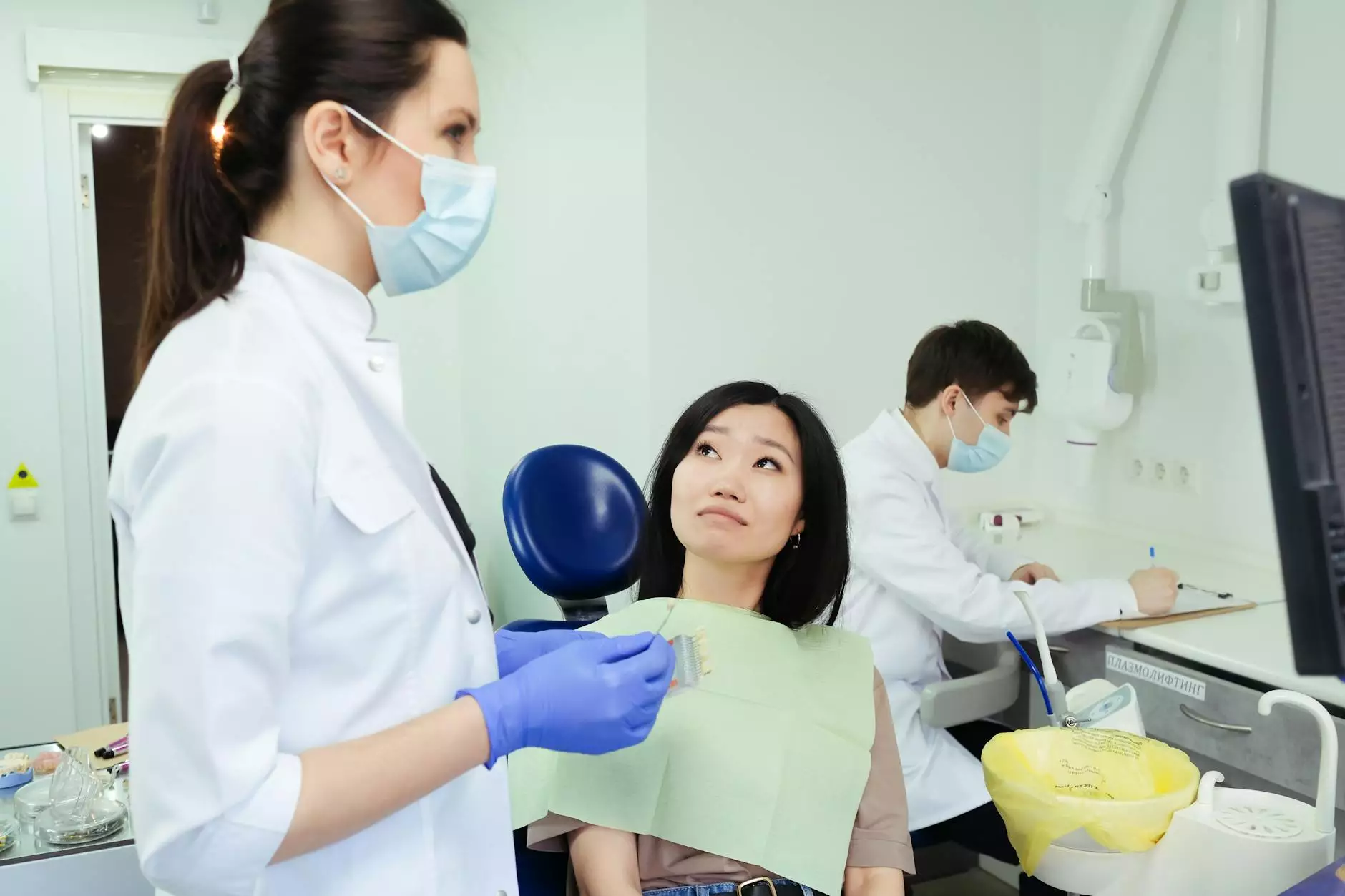Understanding the Role of a Doctor for the Veins

The field of vascular medicine is crucial for maintaining overall health. A doctor for the veins specializes in diagnosing and treating conditions related to the vascular system, which includes arteries, veins, and capillaries. Understanding their role can significantly enhance your awareness of how to care for your veins and ultimately improve your health.
The Importance of Vascular Health
Your vascular system is responsible for transporting blood throughout your body, delivering essential nutrients and oxygen. Poor vascular health can lead to debilitating conditions, including varicose veins, deep vein thrombosis (DVT), and vascular insufficiency. This is where a skilled doctor for the veins plays a pivotal role.
Common Vascular Conditions
Here are some prevalent conditions treated by a doctor for the veins:
- Varicose Veins: Enlarged veins that often appear blue or dark purple. They can cause discomfort and pain.
- Chronic Venous Insufficiency: A condition where the veins struggle to send blood from the legs back to the heart, leading to swelling and skin changes.
- Deep Vein Thrombosis (DVT): A blood clot in a deep vein, usually in the legs. It can be life-threatening if the clot dislodges.
- Peripheral Artery Disease (PAD): Narrowed arteries reduce blood flow to the limbs, causing leg pain and increasing risk of heart disease.
How to Choose the Right Doctor for the Veins
Selecting the right medical professional is vital for effective treatment. Here are essential factors to consider:
- Qualifications: Ensure the doctor is board-certified in vascular medicine. Review their credentials and education background.
- Experience: A doctor with extensive experience in treating vascular conditions improves your chances of receiving effective treatment.
- Patient Reviews: Look for testimonials and reviews from previous patients to gauge their level of care and expertise.
- Facility Information: Opt for a doctor affiliated with reputable hospitals and clinics equipped for vascular treatment.
- Communication: A doctor should take time to address your concerns and explain procedures in a way you understand.
Diagnostic Tools Used by a Doctor for the Veins
Diagnosis is an integral aspect of vascular care. Here are some common diagnostic tools employed:
- Ultrasound: A non-invasive test that utilizes sound waves to visualize blood flow and detect clots or blockages.
- Venography: An X-ray test that uses a special dye injected into a vein to observe the condition of veins.
- Magnetic Resonance Angiography (MRA): A form of MRI that visualizes blood vessels, providing detailed images of arteries and veins.
Treatment Options Offered by a Doctor for the Veins
Upon diagnosis, a vascular doctor will propose tailored treatment plans depending on your condition. Here are some standard treatment options:
1. Lifestyle Changes
Simple modifications such as dietary adjustments, increased physical activity, and weight management can drastically improve vascular health.
2. Medications
Medications may include blood thinners, anti-inflammatories, or venotonics that are aimed at treating specific vascular conditions.
3. Minimally Invasive Procedures
A growing number of procedures can be performed using minimally invasive techniques:
- Endovenous Laser Treatment (EVLT): A laser is used to close varicose veins, rerouting blood to healthy veins.
- Radiofrequency Ablation (RFA): Uses radiofrequency energy to heat and close off problematic veins.
- Sclerotherapy: A solution is injected into the vein, causing it to collapse and fade.
4. Surgical Treatments
In severe cases, surgical intervention may be necessary. This could include procedures like:
- Vein Stripping: Removal of large veins that are causing issues.
- Bypass Surgery: Creating a bypass around blocked veins.
The Role of Technology in Vascular Medicine
Technological advancements have transformed the field of vascular medicine. A doctor for the veins now has access to state-of-the-art tools and techniques:
- Advanced Imaging: Technologies such as 3D ultrasound and CT angiography allow for precise diagnosis and planning.
- Telemedicine: Many vascular specialists offer virtual consultations, providing greater accessibility for patients.
Preventative Care: Visiting Your Doctor for the Veins
Regular check-ups are instrumental in preventing vascular issues. Here’s why:
- Early Detection: Regular visits can help spot potential problems before they become significant issues.
- Personalized Guidance: A doctor will provide tailored advice on lifestyle changes and management.
- Monitoring Progress: Regular assessments can ensure that your current treatment plan remains effective.
When to See a Doctor for the Veins
Recognizing when to seek help is crucial for your vascular health. Here are signs that warrant a visit to a specialist:
- Persistent Leg Pain: Especially after prolonged sitting or standing.
- Swelling: Noticeable swelling in the legs or ankles.
- Skin Changes: Discoloration, ulcers, or changes in hair growth on your legs.
- Visible Veins: Bulging or darkened veins that cause discomfort or embarrassment.
Final Thoughts on Finding Your Doctor for the Veins
Choosing a doctor for the veins is a significant step in ensuring your vascular health. By understanding the vital role these specialists play and the various treatment options available, you can make informed decisions about your care. Always prioritize regular visits to your vascular doctor, remain proactive about your health, and embrace the preventative measures available to maintain optimal vascular health.
For comprehensive care and top-notch treatment in vascular medicine, consider visiting trufflesveinspecialists.com. Here, experts are ready to assist you with your unique vascular needs, ensuring you achieve a healthier life.









